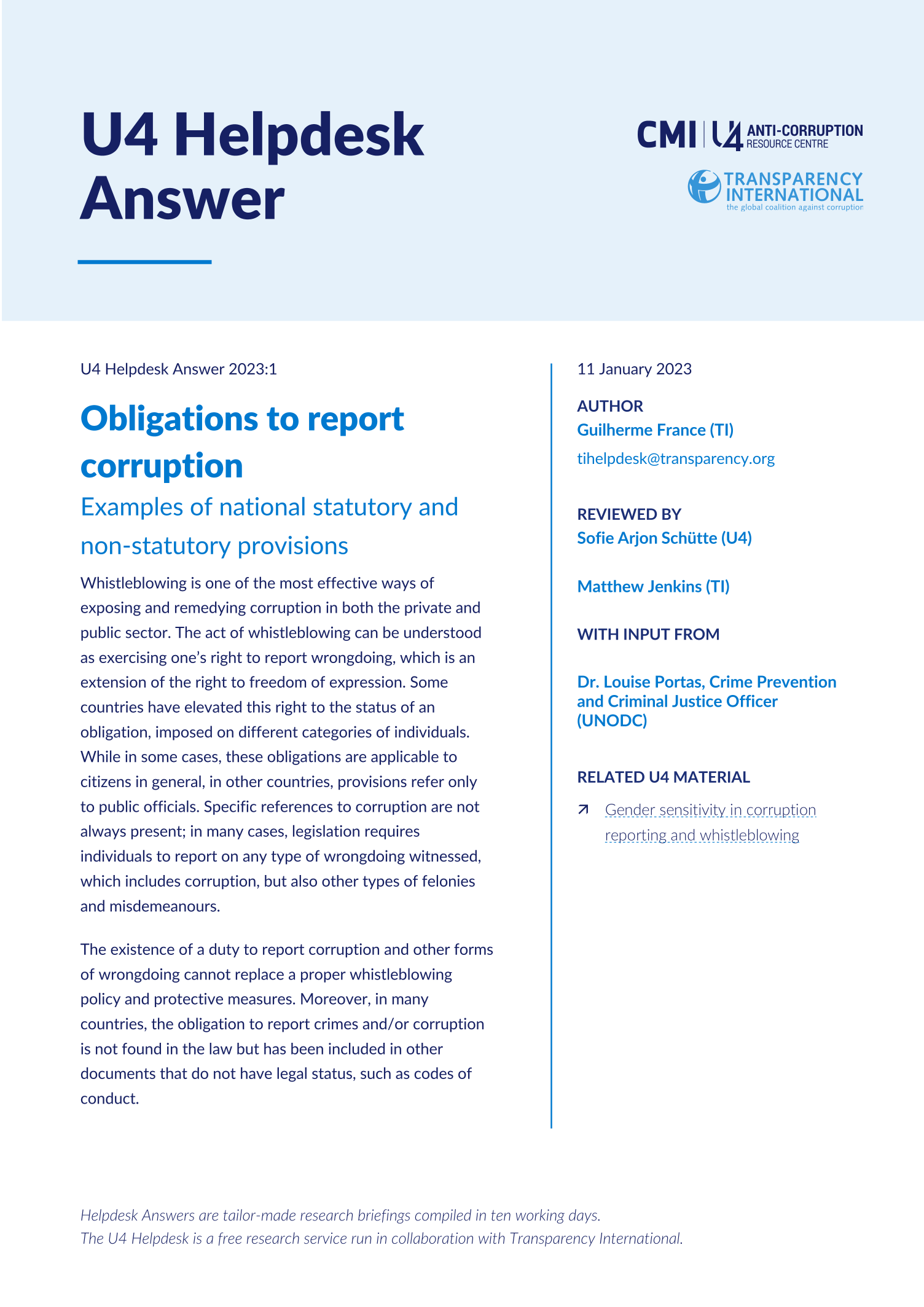Main points
- Whistleblowing is one of the most important tools for exposing corruption.
- International standards seek to encourage individuals in general and public officials in particular to report corruption of which they have become aware, but not all of standards recommend or determine the establishment of an obligation to report.
- Dozens of countries have established statutory obligations on categories of individuals to report crimes and/or corruption they have witnessed. Provisions vary significantly, but penalties usually include imprisonment and fines.
- In some countries, this obligation is found in codes of conduct or guidelines which are not legally binding.
- There is little to no information on the actual enforcement of these provisions and no evidence that such obligations are capable, by themselves, of increasing the number of reports of corruption.
- A glaring contradiction exists in countries where individuals or public officials have an obligation to report instances of corruption, but measures to protect reporting persons are insufficient or inadequate.


